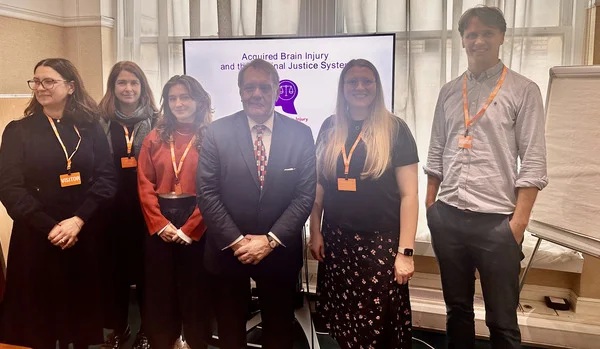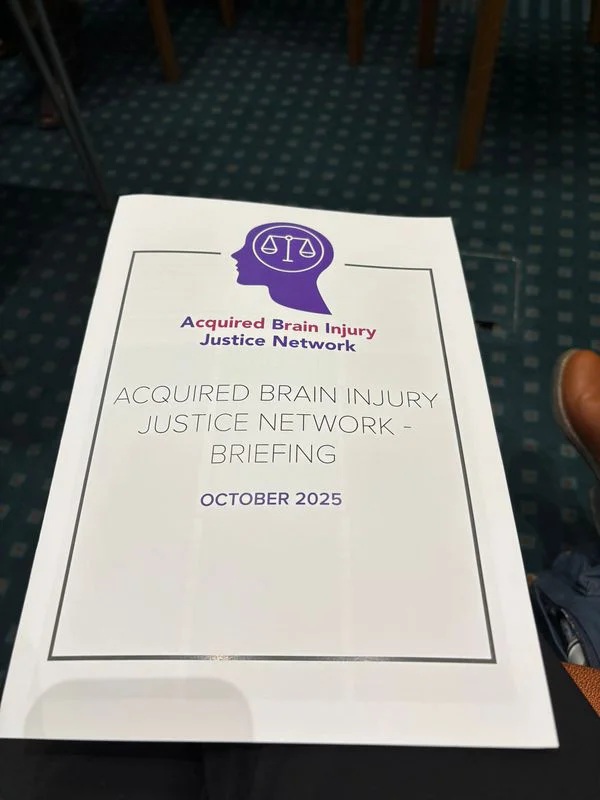The All-Party Parliamentary Group (APPG) for Acquired Brain Injury met on 15th October to discuss criminal justice and acquired brain injury with a range of experts. Sir John Hayes, Chair of the APPG welcomed MPs Andy McDonald and Steve Race and representatives from the UK Acquired Brain Injury Forum, The British Psychological Society, Headway, Brainkind and individuals with lived experience and their families.

Professor Nathan Hughes and Andy McDonald outlined the purpose and aims of the ABI Justice Network which they co chair who had convened the programme.
Dr Annmarie Burns, Consultant Clinical Neuropsychologist from Brainkind opened the meeting with an overview of brain injury in the criminal justice system (CJS) noting that around half of all adults in the CJS have experienced an acquired brain injury and that people in prison with ABI have poorer outcomes, taking longer to adjust to life in custody, having more negative incidents/adjudication and greater mental health issues and difficulty completing interventions. They also struggle with transition to the community and have higher rates of reoffending. She then summarised the positive impact of the Brainkind’s Linkworker programme which is in place in some prisons.

Thea Arch, Policy and Social Change Officer also from Brainkind discussed Brain Injury amongst women in the criminal justice system – referencing their research project Complex Lives. The study found that in one prison 80% of women had a history indicative of brain injury and 78% of women reported being held in a way they could not breathe, with 51% of women losing consciousness as a result. 95% of women reported having experienced domestic abuse and / or violence. These are stark figures which suggest urgent interventions are needed.

Dr Hope Kent, Research Fellow from the University of Exeter and Co-Ordinator of UKABIF’s ABI Justice Network, pieced together various research strands to show Why people with brain injury are over-represented in the justice system: A story of cumulative disadvantage. This work pinpoints elements of people’s lives including poverty, turbulent home life, lack of SEN support, school exclusion and inability to access mental health services which alongside an early brain injury result in high probability of offending and being stuck in a cycle of offending.
In terms of the experience of being in care, the complex lives study showed that 100% of women in prison, who were care experienced had attempted suicide, compared to 55% of those who weren’t care experienced. Women who were care experienced were also more likely to have had a diagnosed brain injury.
This picture of cumulative risk, also indicates numerous missed opportunities for intervention which would prevent this decent into crime.
Davina Jones, Head of Policy and Influencing, Brainkind led a discussion on opportunities for action which requires improvements across three key areas: identifying brain injury, building knowledge and confidence among justice professionals, and adapting everyday practice to meet needs.
Click here to read the Final Briefing Paper